Pharmaceutical companies are rapidly adopting software solutions as the industry embraces digital transformation. According to Grand View Research (2024), the global pharmaceutical software market is projected to grow at a CAGR of 12% annually through 2030, driven by the increasing demand for digital tools in supply chain management and compliance.
These trends highlight the transformative impact of software in the pharmaceutical sector. Advanced tools streamline processes, cut costs, and support real-time data analysis to guide better decision-making and improve patient outcomes. Moreover, the software ensures supply chain consistency and compliance, addressing critical challenges in maintaining quality and minimizing disruptions.
Additionally, software fosters collaboration across teams like R&D, manufacturing, and quality assurance, enabling smoother communication and workflow optimization. Let’s explore how pharmaceutical software solutions can help your business stay competitive and maximize efficiency in this evolving landscape.

What is Pharma Software?
Pharma software is a digital solution designed to automate and streamline tasks within pharmaceutical operations. It encompasses tools for inventory tracking, medicine management, billing, handling customer and manufacturer data, and database maintenance, offering a comprehensive system to enhance efficiency and accuracy.
Often referred to as a pharma information system, this software centralizes data management, optimizes supply chains, and supports e-prescription functionalities. By ensuring precise medication delivery and dosage without manual intervention, pharma software plays a crucial role in improving operational effectiveness and patient care.
Benefits of Pharma Software in the Pharmaceutical Industry
New technologies are constantly emerging to streamline business operations, and pharma software is a prime example in the pharmaceutical industry.
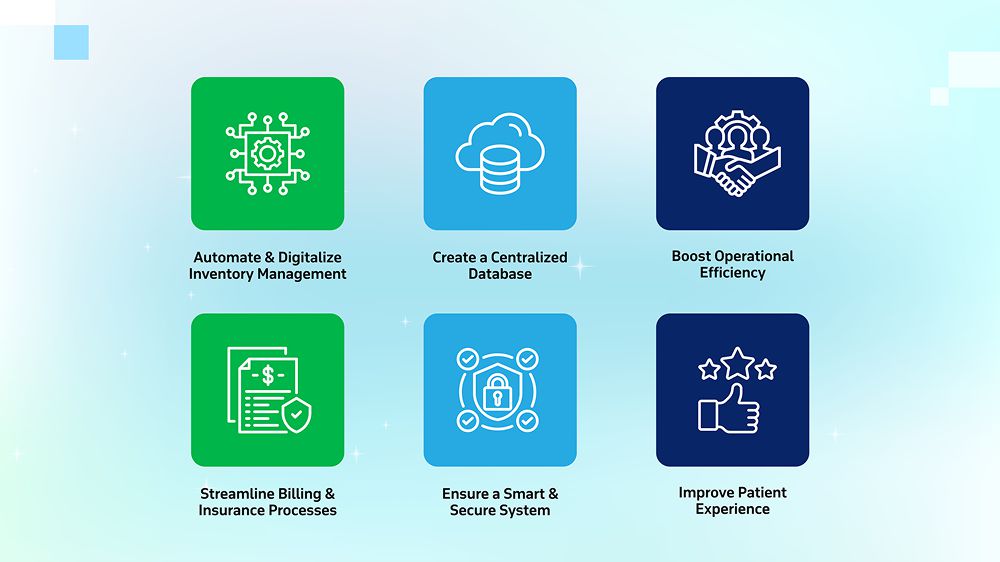
Offering remarkable benefits, pharma software helps modernize processes and improve outcomes, as explored in the following sections:
1. Automate and Digitalize Inventory Management
Pharma software streamlines inventory management by automating stock tracking and inbound and outbound logistics, ensuring accuracy and efficiency. Barcode scanning, RFID technology, and visual tracking systems enable precise monitoring of all products in inventory, minimizing human errors and offering detailed reports on batches, expiration dates, and other critical parameters.
Additionally, intelligent categorization and location systems facilitate faster and more accurate stock movement. When an order is requested, the software provides clear guidance for staff to retrieve the exact product from its designated location, saving time and effort.
2. Create a Centralized Database
A centralized database is crucial for efficiently managing data within the pharmaceutical business. Pharma management software consolidates all essential records, ensuring they are stored and accessible in a single, organized location.
Eliminating scattered data and creating a unified system allows entrepreneurs to organize and retrieve vital information easily. This streamlined approach enhances operational efficiency and supports informed decision-making for better business outcomes.
3. Boost Operational Efficiency
Pharma software solutions that reduce workload and automate the creation of accurate reports can boost operational efficiency. Connecting retail operations to these systems eliminates the need for manual reporting, saving time and resources that would otherwise be spent hiring additional staff for these tasks.
Traditional methods of report preparation are not only time-consuming but also prone to human error. Automated systems enhance accuracy and reliability, minimizing risks and ensuring precise data management for smoother and more effective business operations.
4. Streamline Billing and Insurance Processes
Pharma software systems bring significant value by simplifying complex billing and insurance workflows through digitalization and automation. Advanced features ensure claims are processed accurately, reducing administrative burden while maintaining transparency in billing for customers. Live interfacing with insurance providers further enhances efficiency, enabling real-time claim processing and minimizing delays.
Pharma software also facilitates the creation of instant, professional invoices that can be sent to various printers. Faster counter checkouts increase customer satisfaction, offering the seamless and efficient experience of a skilled and organized operation.
5. Ensure a Smart and Secure System
Implementing a smart and secure pharma software system ensures the safeguarding of business operations by maintaining detailed records of all transactions. Such a system helps boost revenue by providing accurate, reliable data management and preventing potential losses from misplaced or inaccurate records.
A centralized database enhances efficiency by storing all critical data and details in one secure location, making retrieval quick and hassle-free when needed. Unlike traditional methods prone to data loss or mismanagement, modern pharma systems offer robust security measures, ensuring sensitive information and transactional records are protected and efficiently managed.
6. Improve Patient Experience
Implementing pharma software systems significantly enhances the patient experience by streamlining prescription processing and reducing wait times. Automated prescription filling allows customers to receive their medications promptly, minimizing delays and improving overall satisfaction.
Moreover, these systems improve prescription accuracy, reducing the likelihood of errors that can adversely affect patient health. By ensuring precise medication dispensing, pharmacies build trust and reliability with their customers, fostering a positive and safe healthcare environment.
Breaking Down Common Types of Pharma Software
Advanced software solutions provide a crucial advantage in the competitive pharmaceutical industry. These tools help streamline processes, enhance efficiency, and drive organizational growth, making them indispensable for modern businesses.
1. Enterprise Resource Planning (ERP)
Enterprise Resource Planning (ERP) systems provide a centralized platform for managing critical business functions in pharmaceutical operations. By integrating processes like manufacturing, inventory management, procurement, and payroll, ERP enables seamless workflows and improved decision-making. It also simplifies compliance with cGMP requirements, such as traceability of drug components and packaging under FDA 21 CFR Part 211, ensuring operational alignment with regulatory standards.
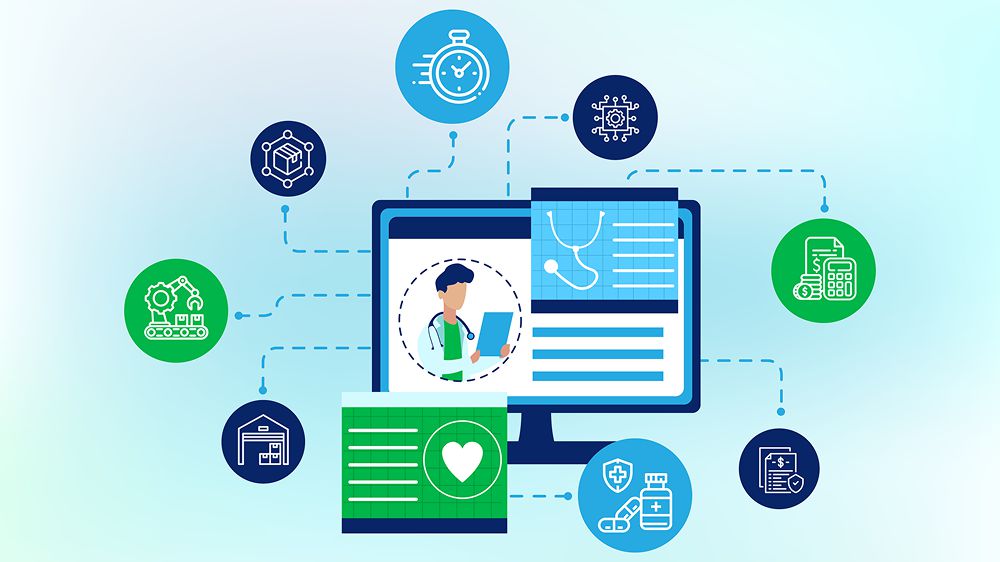
ERP systems connect finance, supply chain, and manufacturing departments, ensuring consistent and accessible resource data. They also track active pharmaceutical ingredients (APIs) and inventory levels, preventing shortages and production delays. For example, a pharmaceutical company might use ERP to manage raw material procurement while maintaining real-time visibility into stock levels, reducing downtime, and ensuring smooth operations.
2. Manufacturing Execution Systems (MES)
Manufacturing Execution Systems (MES) enhance production efficiency by monitoring and controlling operations on the shop floor. Positioned between ERP systems and real-time tools like SCADA, MES tracks the flow of active pharmaceutical ingredients (APIs) into finished dosage forms (FDFs), ensuring quality and compliance at every stage. Functions like resource scheduling, downtime tracking, and electronic batch record generation support cGMP requirements and maintain regulatory compliance.
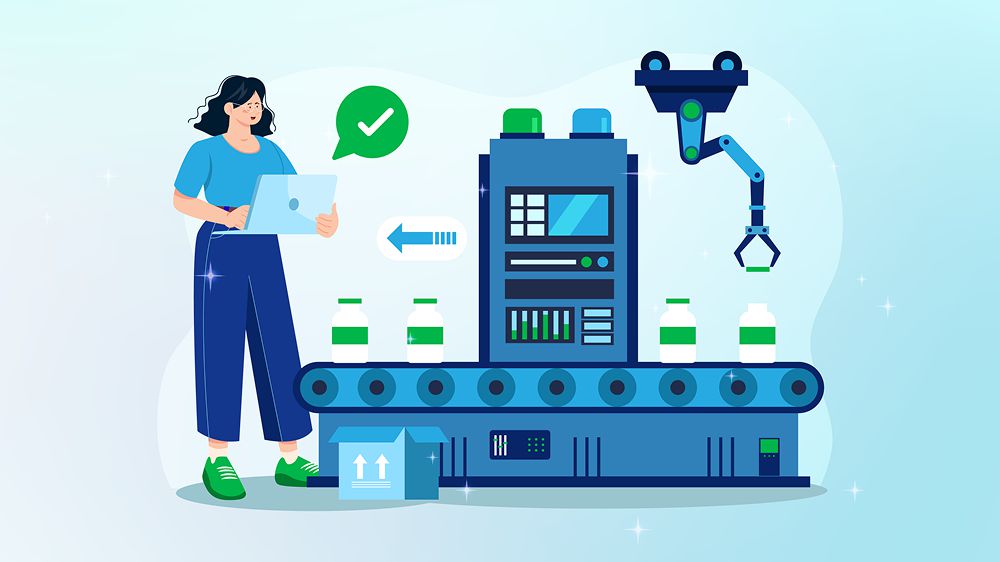
In addition to optimizing production, MES simplifies reporting obligations, such as drug volume disclosures mandated by the 2020 CARES Act. Implementing risk-based validation methods outlined in GAMP 5 ensures software reliability and safety. For instance, MES can monitor production timelines, identify bottlenecks, and consistently deliver high-quality pharmaceutical products.
3. Customer Relationship Management (CRM)
Customer Relationship Management (CRM) software enables pharmaceutical companies to manage client interactions and strengthen relationships with distributors, hospitals, and pharmacies. By centralizing customer databases and automating sales and marketing campaigns, CRM ensures efficient communication and a seamless client experience. Sales teams can track interactions, schedule follow-ups, and monitor campaign progress, improving customer engagement.

Both general-purpose and industry-specific CRM tools offer key functionalities, including workflow automation, contact management, and sales process tracking. For example, a pharmaceutical sales team can use CRM to manage hospital accounts, track conversations with procurement teams, and efficiently coordinate product launches, ensuring stronger connections with key clients.
4. Supply Chain Management (SCM)
Supply Chain Management (SCM) software is critical in optimizing logistics, procurement, production planning, and inventory management in pharmaceutical operations. By enhancing visibility across the supply chain, SCM systems help mitigate risks, reduce costs, and address the complexities of fragmented supply networks. Effective SCM ensures the seamless movement of drug products from manufacturing facilities to patients while meeting GDP standards and quality control requirements.

SCM tools support supplier assessments, serialization, traceability, and temperature monitoring to ensure the safety and integrity of pharmaceutical products. For instance, a pharmaceutical distributor may use SCM to track temperature-sensitive shipments and monitor their conditions in real-time, ensuring that products like vaccines reach patients at optimal quality.
5. Quality Management Systems (QMS)
Quality Management Systems (QMS) automate processes essential for maintaining product quality and regulatory compliance. Key functionalities include managing corrective and preventive actions (CAPAs), tracking deviations, and organizing critical documentation like SOPs and regulatory submissions. Automated workflows and audit trails ensure adherence to industry standards and simplify compliance.

QMS also enhances employee training by tracking qualifications and streamlining the onboarding process for new staff. Complaints, investigations, or audits can be managed through configurable workflows, reducing administrative burdens. A pharmaceutical company might use QMS to ensure all quality checks for a new product are documented and compliant, paving the way for a successful market launch.
6. Laboratory Information Management Systems (LIMS)
Laboratory Information Management Systems (LIMS) facilitate efficient data and sample management in pharmaceutical laboratories. They track sample locations, automate report generation, and manage instrument calibration. These capabilities reduce manual errors and improve lab productivity while maintaining compliance with Good Laboratory Practice (GLP) standards.
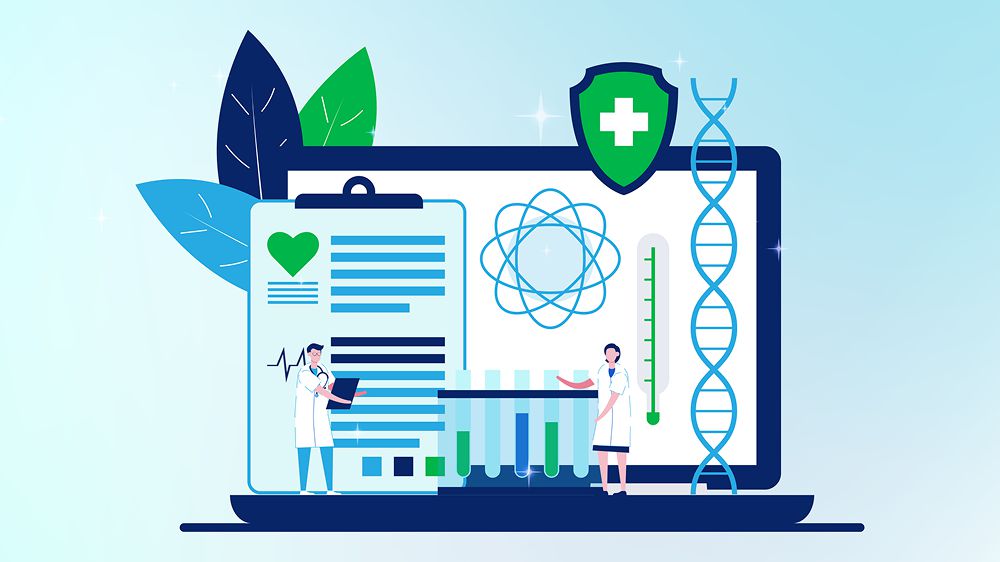
Modern LIMS also supports digital workflows for tasks like reagent tracking, assay data handling, and electronic data exchange. For instance, a research lab may implement LIMS to manage reagent inventory, track assay results, and generate automated compliance reports, streamlining operations and advancing toward a fully digital laboratory environment.
7. Clinical Trial Management Systems (CTMS)
Clinical Trial Management Systems (CTMS) provide tools to manage the intricate logistics of clinical trials, including patient tracking, enrollment, scheduling, and reporting. Centralized oversight ensures trials are conducted efficiently and aligned with regulatory standards, reducing delays and improving data accuracy.
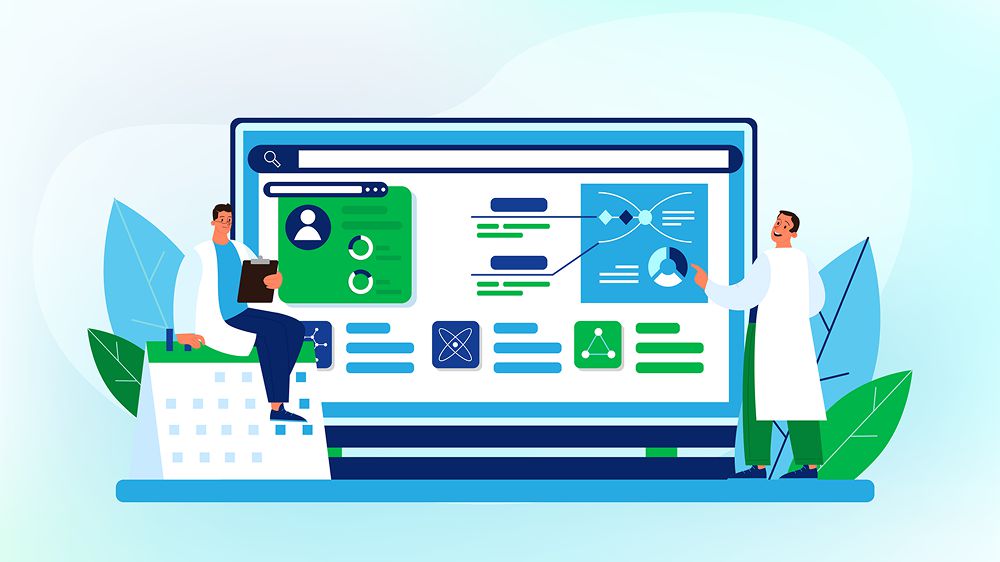
CTMS automates record-keeping and simplifies communication across trial sites. For example, a pharmaceutical company conducting a multi-site clinical trial may use CTMS to coordinate patient visits, track enrollment progress, and generate regulatory submissions. This ensures a streamlined process while maintaining high-quality data and compliance with trial protocols.
Interested in one of these solutions? Our team of experts is here to ensure your pharmaceutical software solutions are rapidly deployed and fully optimized.

The Future of Pharma Software: What to Look For in 2025?
Pharmaceutical software is evolving rapidly, paving the way for innovative and interconnected solutions. By 2025, the industry will embrace a more integrated, fully digital approach, transforming how pharmaceutical companies operate.
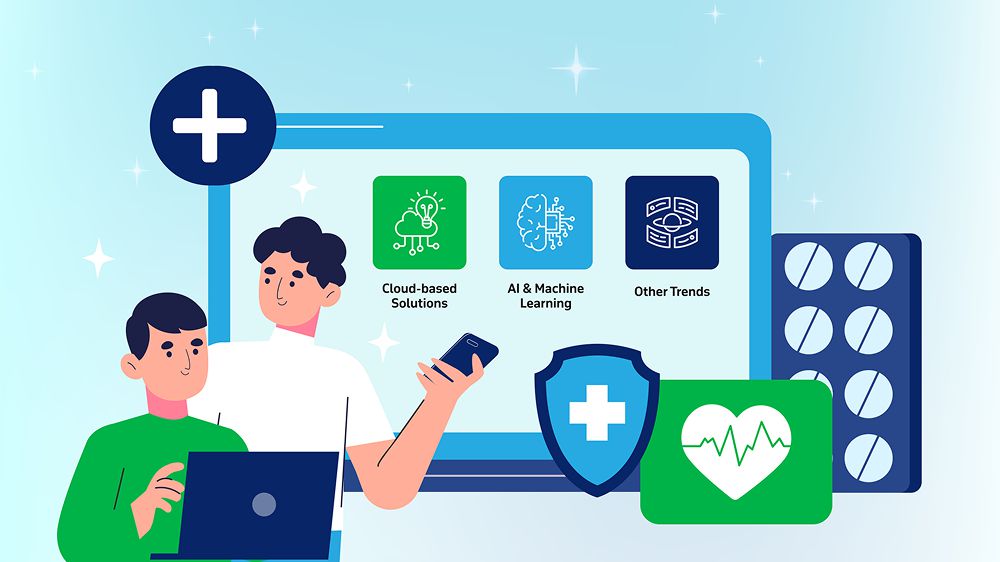
1. Cloud-based Solutions
Cloud-based pharmaceutical software provides an efficient alternative to traditional on-premise systems, which require significant infrastructure investments and IT expertise for maintenance. Vendors now manage upgrades, hosting, and security, reducing operational burdens while enabling more straightforward resource allocation. Remote access capabilities solve the challenges of managing distributed teams and promote seamless collaboration.
The shift to cloud solutions helps pharmaceutical companies reduce costs tied to physical infrastructure while offering flexibility and scalability. Cloud-based platforms, which support global connectivity and remote operations, are redefining the industry and making it more adaptive to modern demands.
2. AI and Machine Learning
AI and machine learning are revolutionizing pharmaceutical processes, particularly in drug discovery. Traditional methods are costly and time-consuming, with only 10% of drugs reaching human clinical trials. AI-powered tools allow for virtual modeling and testing of drugs “in silico,” accelerating the discovery process while reducing risks and costs.
Beyond discovery, AI offers transformative benefits across the industry. Predictive maintenance tools enhance equipment effectiveness by automating calibration and minimizing downtime. AI-driven systems create audit-ready quality and regulatory documents in seconds, integrating real-time product data. Additionally, AI modeling predicts drug shortages, demand spikes, and disease outbreaks, enabling smarter, more targeted patient distribution and improving global healthcare delivery.
3. Other Trends
Pharmaceutical software is expanding as companies move away from outdated, paper-based systems. Modern software solutions, from ERP to supply chain management tools, offer faster, more efficient pathways to operational goals while ensuring lasting compliance. By adopting these systems, businesses gain valuable time and insights to optimize processes and remain competitive in an evolving industry.
Pharma software is also becoming increasingly versatile, with vendors integrating multiple functionalities into single platforms. Manufacturing execution systems now incorporate ERP features, and compliance management tools often support supply chain tasks. Interconnectivity between platforms like LIMS, SCADA, and PAT is also becoming the norm. Companies that embrace an integrated, forward-thinking approach will lead the industry by 2025.
Renovate Your Pharma Software with KMS Healthcare
The pharmaceutical industry is entering a new era of digital transformation and innovation, reshaping traditional workflows. Staying competitive in this rapidly evolving landscape requires leveraging advanced technologies to streamline operations, ensure compliance, and deliver better outcomes.
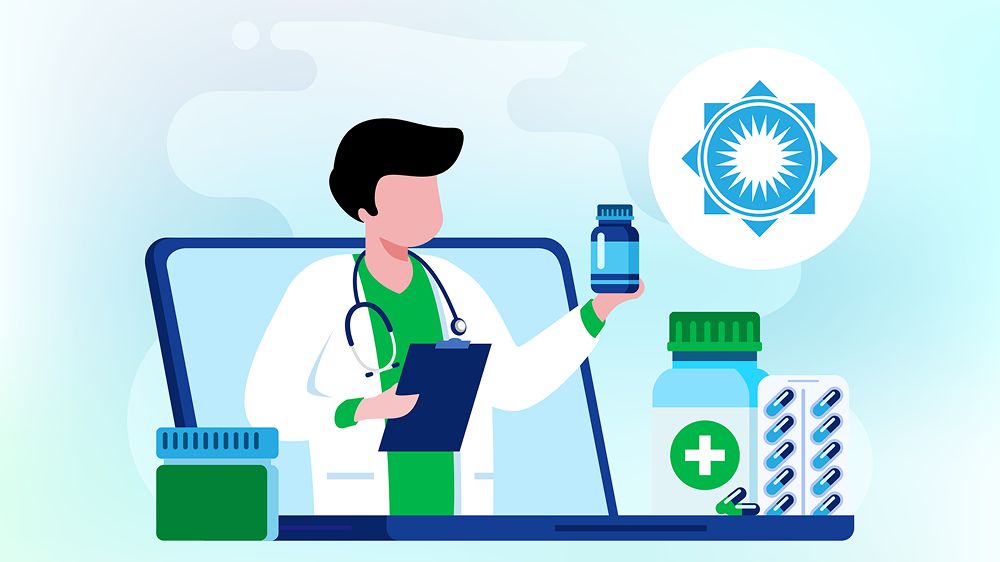
KMS Healthcare specializes in custom software development tailored for the pharmaceutical sector. From planning and developing to testing and launching cutting-edge software solutions, KMS Healthcare ensures your business is equipped to embrace these advancements. With expertise in integrating tools like ERP, SCM, and AI-powered solutions, we’ll help you optimize your operations and drive efficiency.
Take the first step toward a fully digital pharmaceutical future. Contact KMS Healthcare today for a consultation and discover how we can tailor our healthcare software solutions to your unique business needs.